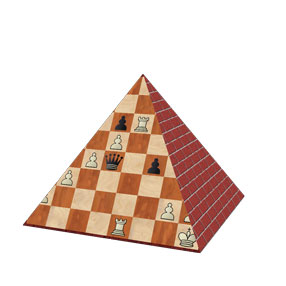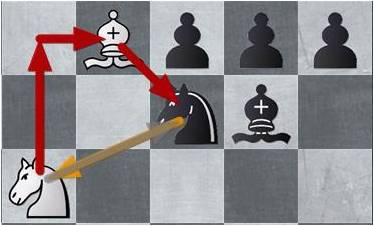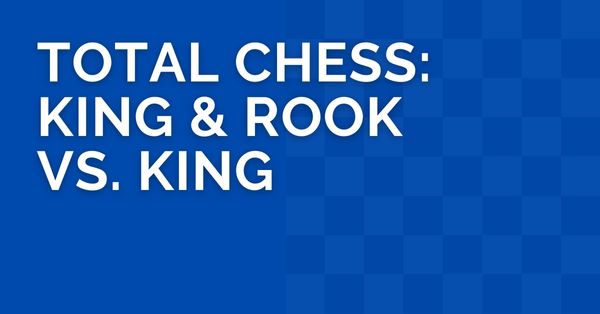Total Chess: Thinking, Playing, Sportsmanship

Chess is a quiet, thinking game. You should be quiet when you play. Do not talk or make noise. This allows both players to think. You should also sit still. It is hard to think when someone is fidgeting, or standing, or walking around. Let your fingers do the walking; let your pieces do the talking.
You should also play quickly, taking only as much time as you need to think. Nobody likes to play a game with someone who takes forever to move.
You do need to take some time to think, though. Do not make the first move that comes into your head. Try to find at least three different choices, then think about each choice carefully before you make your move. Think before you move! Move before you think and your move is going to stink! Many players move too fast, and then realize they have made a mistake after they move. Think before you move, not after you move. Think for yourself. Think hard, think long; think fast, think strong.
It is always important to play fair, too. Nobody wants to play with someone who cheats. Always follow the rules and tell the truth. If you have a disagreement during a game, be fair and honest when you work it out. You want to win, but you do not want to win by cheating. Everybody loses sometimes. No matter how good you are, there is always somebody better. When you play a better player, you will probably lose. Expect it. You cannot win every game, but you can do your best and have fun.
After a game, it is a good idea to talk about the game. If you win, you can review what you did right. If you lose, you can see what you did wrong. It is good to lose chess games. When you lose, you learn. You become a better chess player by losing games and learning from your mistakes. Also, do not get too happy when you win, and do not get too sad or angry when you lose. Winning and losing is all part of the game. When you win, do not brag or shout; when you lose, do not cry or pout.
A good way to start and end a chess game is with a handshake. Before each game, shake hands and say, “good luck,” even though there is no luck in chess. A good chess player makes his own luck. After each game, shake hands and say, “good game,” even though you may not have played your best. The joy of chess is not only in winning, but in having fun playing the game.
***
From the book, “TOTAL CHESS: Learn, Teach and Play the Easy 1-2-3 Way,” by John Herron
TOTAL CHESS is your complete guide to chess. It covers everything: rules, strategies, tactics and checkmates.
Everything in chess comes in threes. Three simple strategies are presented for the opening, midgame, endgame, etc. Each lesson is brief and covers one concept in simple language that everyone can read and understand.











Comments: